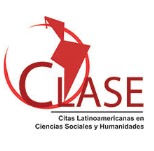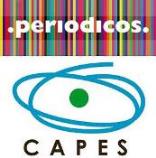Pornography and sexual offense committed by adolescents in Brazil:
a narrative review
DOI:
https://doi.org/10.38034/nps.v32i76.717Keywords:
adolescents, sexual offenders, pornography, sexualityAbstract
This narrative review aims to expand the contribution on the association between pornography consumption and sexual offenses committed by adolescents. After reviewing previous published researches on the subject, the discussion was organized into three topics: (1) socioeconomic and family conditions; (2) encouragement of early sexual initiation; (3) encouragement of violence and sexual violence in particular. The theoretical framework of the new-paradigmatic systemic thinking was used to discuss the articles in the method, since this association demands a different conception of the traditional thinking of causality, due to the complexity of the interactions of the contextual elements. The majority of scientific production on the subject was found in international studies, pointing out the necessity for further studies in the Brazilian context. It was concluded that the association between pornography consumption and sexual offense by adolescents occurs from the interaction between certain characteristics of the actors in the context and vulnerability factors.
Downloads
Downloads
Published
How to Cite
Issue
Section
License
Autores que publicam nesta revista concordam com os seguintes termos:- Autores mantém os direitos autorais e concedem à revista o direito de primeira publicação, com o trabalho licenciado simultaneamente sob uma Licença Creative Commons Attribution após a publicação, permitindo o compartilhamento do trabalho com reconhecimento da autoria do trabalho e publicação inicial nesta revista.
- Autores têm autorização para assumir contratos adicionais separadamente, para distribuição não-exclusiva da versão do trabalho publicada nesta revista (ex.: publicar em repositório institucional ou como capítulo de livro), com reconhecimento de autoria e publicação inicial nesta revista.
- Autores têm permissão e são estimulados a publicar e distribuir seu trabalho online (ex.: em repositórios institucionais ou na sua página pessoal) a qualquer ponto antes ou durante o processo editorial, já que isso pode gerar alterações produtivas, bem como aumentar o impacto e a citação do trabalho publicado (Veja O Efeito do Acesso Livre).

















